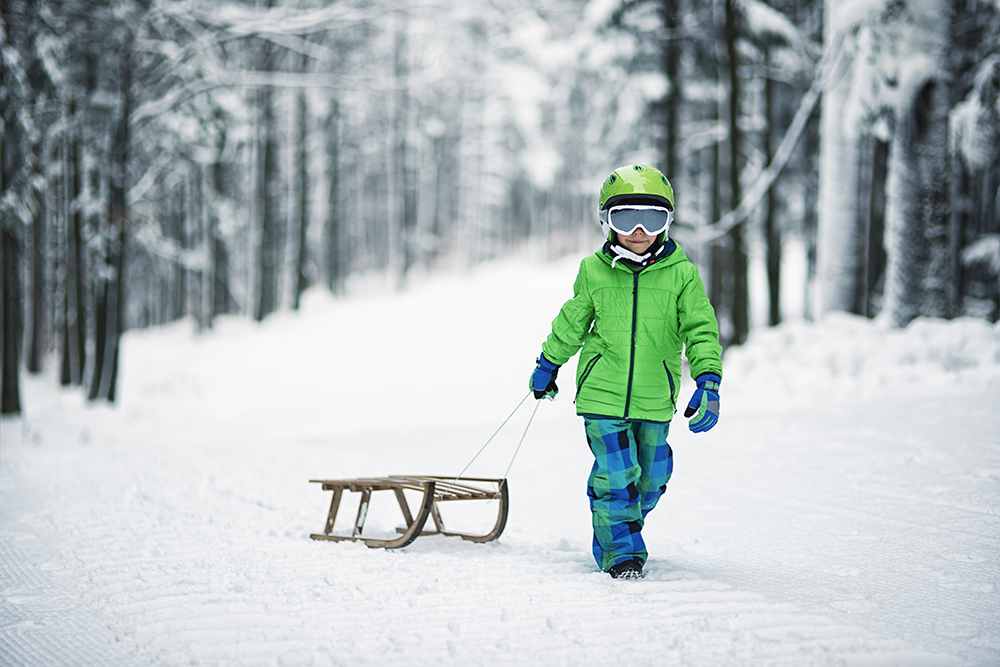Thursday, February 15, 2024
Skiing, Snowmobiling, Sledding, Oh My! Preventing Traumatic Brain Injuries While Enjoying the Snow
Medically reviewed by Gigi Madore, MD
Winter sports like skiing, snowmobiling and sledding offer exhilarating experiences, but they also come with risks of traumatic brain injuries (TBIs). To ensure a safe and enjoyable time on the slopes or trails, prioritize safety measures and recognize the signs of potential head injuries.

Practice safety: Protect your head
First and foremost, safeguarding your head should be a top priority. Regardless of the winter activity, protect your head from a concussion or any brain injury.
Practice these tips:
- Wear a high-quality, properly fitted helmet
- Stay vigilant about your surroundings — watch out for other skiers, snowmobiles and cars
- Avoid icy or hazardous conditions that increase the risk of accidents
- Stay on designated trails or slopes to minimize unexpected hazards
- If there’s an injury or accident, stop the activity immediately
Recognize the signs of a traumatic brain injury (TBI)
While playing winter sports and other activities, be aware of the signs that might indicate a TBI. Even seemingly minor symptoms should not be ignored, as they could indicate a more serious issue.
Mild TBI symptoms may include:
- Headaches or pressure in the head
- Dizziness or loss of balance
- Confusion or disorientation
- Nausea or vomiting
- Fatigue or drowsiness
Severe TBI symptoms might involve:
- Loss of consciousness
- Severe headaches that worsen over time
- Convulsions or seizures
- Clear fluids draining from the nose or ears
Timely response: When to seek medical attention
Knowing when to seek help is critical. If you or someone else experiences a blow to the head and exhibits any TBI symptoms, seek medical attention immediately. Delaying or neglecting professional assistance can exacerbate the injury and potentially lead to severe consequences. Keep having fun this winter by practicing these safety tips and educating others.
Questions? Contact your primary care provider or make an appointment with WMCHealth Physicians or Bon Secours Medical Group.